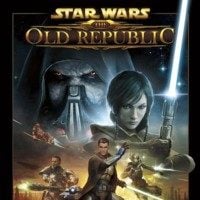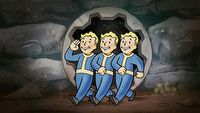BioWare founders wanted to take over Electronic Arts for „$2 billion a year,” but Star Wars stood in the way
Greg Zeschuk and Ray Muzyka were quietly hoping they had a chance to take over Electronic Arts from the inside. Provided Star Wars: The Old Republic is a huge success.

The co-founder of BioWare was contemplating acquiring Electronic Arts, but he didn't have the Force from the Star Wars licensed game.
Sounds bizarre? Perhaps, but that was supposed to be Greg Zeschuk's plan, as the developer hinted during a conversation with Simon Parkin in the latest episode of the My Perfect Console podcast (via PC Gamer).
At the foundation of these ambitions lies Star Wars: The Old Republic—a major MMO game based on one of the most recognizable brands in history. It was the last project that Zeschuk and Ray Muzyka (the second founder of BioWare) worked on, and both developers were quietly hoping for great success. More specifically: about 2 billion in revenue per year.
Of course, this wouldn't guarantee a full takeover of Electronic Arts by Zeschuk and Muzyka, but it would be a strong argument in the fight for the position of the company's boss. However, although SWTOR did quite well and is still alive today (albeit with different developers), it was by no means a World of Warcraft killer. A lot is mentioned regarding the massive production costs (the game featured full dubbing and typical BioWare dialogues), that just a year after its release, the game transitioned to a free-to-play model. Ultimately, both developers left EA shortly after the release of The Old Republic.
Some players seem to regret that the developers' plan has gone up in smoke, mainly in the context of the current situation of Electronic Arts (or rather the developers and brands bought by the company, including BioWare). Another matter is whether EA would be in a better position under Zeschuk's rule, since the Canadian clearly dislikes "big companies," because - as he put it - they "exist to exploit properties" and games. Read: "squeezing money," while the dev prefers "making games" rather than "running operational activities."
0

Author: Jacob Blazewicz
Graduated with a master's degree in Polish Studies from the University of Warsaw with a thesis dedicated to this very subject. Started his adventure with gamepressure.com in 2015, writing in the Newsroom and later also in the film and technology sections (also contributed to the Encyclopedia). Interested in video games (and not only video games) for years. He began with platform games and, to this day, remains a big fan of them (including Metroidvania). Also shows interest in card games (including paper), fighting games, soulslikes, and basically everything about games as such. Marvels at pixelated characters from games dating back to the time of the Game Boy (if not older).
Latest News
- End of remote work and 60 hours a week. Demo of Naughty Dog's new game was born amid a crunch atmosphere
- She's the new Lara Croft, but she still lives in fear. Trauma after Perfect Dark changed the actress' approach to the industry
- „A lot has become lost in translation.” Swen Vincke suggests that the scandal surrounding Divinity is a big misunderstanding
- Stuck in development limbo for years, ARK 2 is now planned for 2028
- Few people know about it, but it's an RPG mixing Dark Souls and NieR that has received excellent reviews on Steam, and its first DLC will be released soon


